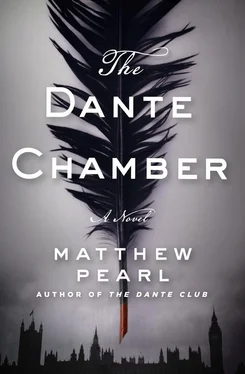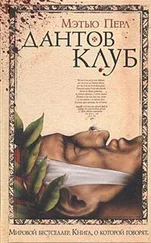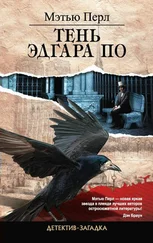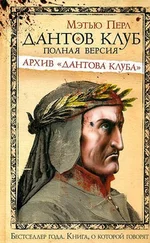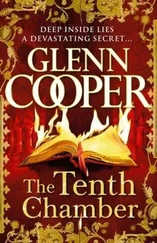“If you stay perfectly still and look at me as if I were Hercules,” the painter was saying to the model, “I will cosmeticize you to appear the age you claim to be, but every time you move your chin I will add a wrinkle.”
The model’s eyes widened with fear — she did not move a muscle.
“If you leeches come here for rent,” Hughes now declared with contempt to the approaching footsteps, continuing his pantomime with the brush and never taking his eyes off the woman, “then let me finish this commission so it shall come into your filthy paws all the sooner!”
“We do not come for money, Mr. Hughes.”
Hughes put down his brush and slowly turned toward the woman’s voice.
“Everyone!” he managed to say after a few sputtering attempts. “An honor, an honor. Everyone, at attention, please! What an honor, the queen, here in my studio!”
The other artists barely raised their eyes from their canvases or, in the case of one, from a pile of sketches on the floor used as a pillow. Hughes had become one of Dante Gabriel Rossetti’s better-known disciples, but Browning did not recognize most of the artists, each of whom were Hughes’s junior by at least half a dozen years. Hughes had been around in the days of the so-called Pre-Raphaelite Brotherhood, a league of men with ambitions — mystical and artistic — to change the world. Christina had been the only woman among them, and was loved in different ways by all the men there, known as Queen of the PRB. Glancing around the cavernous and decaying paint-splattered studio, Browning noticed relics from the lost days of their bygone Brotherhood, including a page on display called “Creed,” with this somewhat sacrilegious heading:
We, the undersigned, declare that the following list of Immortals constitutes the whole of our Creed, and that there exists no other Immortality than what is centred in their names...
The names that followed included Shakespeare, Cervantes, the author of the book of Job, and, one that Browning underlined with his finger, Dante Alighieri. Each one had written of suffering and had suffered. The manifesto was in Gabriel’s handwriting.
The Brotherhood exhibited their paintings around London and printed their poetry in select publications. They gradually received acclaim for revolutionizing art by overturning conventions — not by seeking out what was new but by salvaging the old and forgotten.
“Christina Rossetti, such an honor,” Hughes reiterated. “And a pleasure to see you, Mr. Browning.”
Hughes broke into a quote Browning heard regularly during encounters with his readers on London streets:
In a sheet of flame
I saw them and I knew them all. And yet
Dauntless the slug-horn to my lips I set,
And blew. “Childe Roland to the Dark Tower came.”
“Oh, I have painted a few canvases inspired by your jaunty ‘Roland,’ which I admire so much, certainly far more than your Sordello. After reading it I still didn’t know if Sordello was a man or a city or a wine. What is it the magazines always call you — ‘the greatest diner-out and second greatest poet in England’? They mean next to Tennyson, of course.”
“Indeed,” Browning said, wanting to wring his neck.
Hughes waved away his confused model and offered the sofa to Christina and Browning.
“Excuse the crudeness of my current canvas. Is there no girl in London who can inhabit the exact form of Guinevere I seek? Dante — I mean your brother, not the medieval bard — always tried to coax the rest of us into painting more scenes of Beatrice and visions from the Divine Comedy , but my mind’s eye inevitably returns to our native legends. It is an honor to have two such esteemed poets in our studio, and always an honor to be in the presence of a Rossetti, or any friends of Dante’s.”
Browning and Christina exchanged a brief glance at the mention of the Comedy , then Christina returned the artist’s compliments with a smile of benediction worthy of her nickname of queen. “Mr. Hughes, we do apologize for our making a visit without sending word first. But it is rather a pressing matter. We are curious about the day that Mr. Morton was found in such a horrifying state in North Woolwich.”
The painter raised his brows in surprise. “Yes?”
“It is our understanding you were passing through the same area where it happened,” she continued diplomatically, omitting that they were told this by a young prostitute. “We have personal reasons for wishing to better comprehend what might have been witnessed there by you or others.”
“No,” Hughes said, dropping into an irritated whisper. “I daresay you have me confused with someone else.”
“I beg your pardon, but I don’t believe we do,” Christina started. “The fourteenth of January, early in the morning.”
“Come, we don’t care a straw about what you were doing there,” Browning said, forfeiting Christina’s patience and tact. When Hughes continued to profess ignorance, Browning added: “Perhaps your wife would wonder what you were doing out there under the cover of night!”
The painter deflected further questions and insisted on resuming his work before he lost the train of his vision altogether.
After they were back on the street, Christina did not say a word of reprimand. She would just as soon overturn a room of furniture as openly criticize anyone. But Browning knew she was silently condemning him for his temper. She had an inhuman way of withholding judgment so genuinely and completely, that whoever was with her presumed she must be judging as harshly as possible. He began defending himself against these imagined accusations, point by point. The more implacable her expression, the more he argued how the fault was Arthur Hughes’s and not his.
“Mr. Browning! Miss Rossetti! Frigid as the North Pole out here.”
Hughes came out of the building, walking toward them. Wearing a big smile, he shook their hands once again, and then apologized profusely for not answering their questions candidly. “You see, I did not want the others to hear that I had been at those gardens. Not because of the park whores, as you seem to believe, Mr. Browning. I have been doing a study of Londoners in gaslight and moonlight, from the highest to lowest members of society. Sometimes the whores are the best subjects, even if they tend to be shy about being painted, as they’ve lived such tragic lives. That’s why I was there. You see? I did these that night in the gardens.”
He held out a pile of sketches. Browning took them and placed them where Christina could see — rapidly drawn faces of men and women surrounded by chalky outlines of the night sky.
“Gentle with them, if you please, Mr. Browning! Those gardens are where I have been recruiting my best female models as of late, and I do not want any of those sneaks inside my studio to steal my territory. There is no honor as there used to be in the days of Dante’s Brotherhood, before our round table of art and life was dissolved by illnesses, marriages, financial disappointments. I am already short on passable Guineveres, as I mentioned, and do not want them poached from me by lesser or, worse still, better artists. Why, I suppose the word must have already spread, if that is what Dante was doing there.”
“Do you mean my brother?” Christina asked with a gasp. “You saw him? At the gardens in North Woolwich?”
Hughes’s face twisted into a state of confusion. “Isn’t that how you knew I was there that night? I just assumed Dante told you.”
“You’re saying you saw Gabriel there? The same time Jasper Morton was killed?” asked Browning.
“That’s right,” Hughes answered very slowly, suspecting their sanity. “He was in a funk, too, Mr. Browning. I tried to speak to him. ‘Dante, where have you been? Dante, is that you?’ I cried out. But he did not answer. He kept on walking before I could reach him. I believe Dante happened upon that poor politician, Morton, before anyone else who was there. He seemed to be standing right near the body before the rest of us noticed what had occurred. All right, my queen of us all?”
Читать дальше
